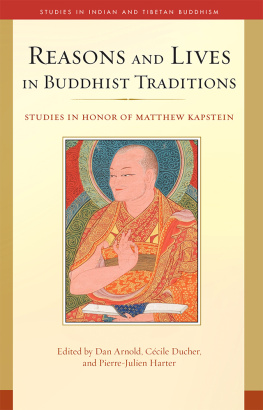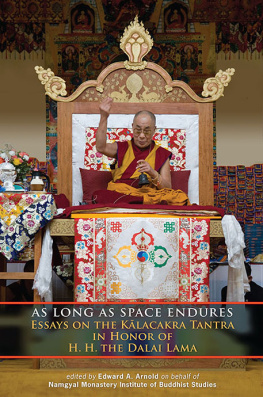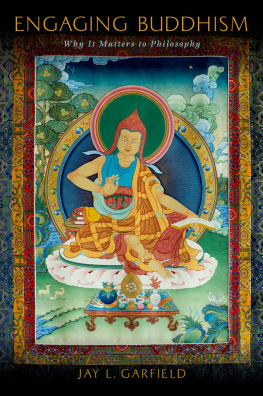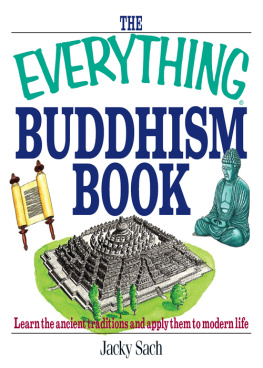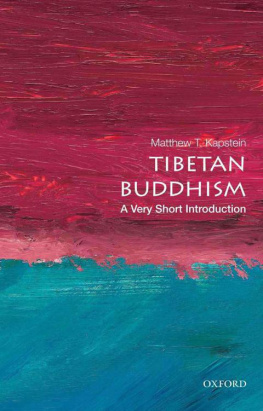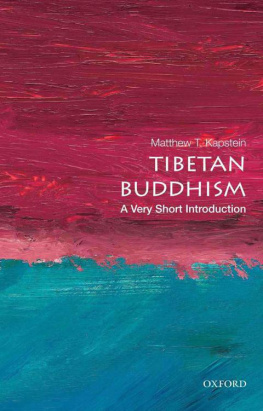Arnold Dan - Reasons and Lives in Buddhist Traditions: Studies in Honor of Matthew Kapstein
Here you can read online Arnold Dan - Reasons and Lives in Buddhist Traditions: Studies in Honor of Matthew Kapstein full text of the book (entire story) in english for free. Download pdf and epub, get meaning, cover and reviews about this ebook. year: 2019, publisher: Wisdom Publications, genre: Religion. Description of the work, (preface) as well as reviews are available. Best literature library LitArk.com created for fans of good reading and offers a wide selection of genres:
Romance novel
Science fiction
Adventure
Detective
Science
History
Home and family
Prose
Art
Politics
Computer
Non-fiction
Religion
Business
Children
Humor
Choose a favorite category and find really read worthwhile books. Enjoy immersion in the world of imagination, feel the emotions of the characters or learn something new for yourself, make an fascinating discovery.
- Book:Reasons and Lives in Buddhist Traditions: Studies in Honor of Matthew Kapstein
- Author:
- Publisher:Wisdom Publications
- Genre:
- Year:2019
- Rating:4 / 5
- Favourites:Add to favourites
- Your mark:
- 80
- 1
- 2
- 3
- 4
- 5
Reasons and Lives in Buddhist Traditions: Studies in Honor of Matthew Kapstein: summary, description and annotation
We offer to read an annotation, description, summary or preface (depends on what the author of the book "Reasons and Lives in Buddhist Traditions: Studies in Honor of Matthew Kapstein" wrote himself). If you haven't found the necessary information about the book — write in the comments, we will try to find it.
Arnold Dan: author's other books
Who wrote Reasons and Lives in Buddhist Traditions: Studies in Honor of Matthew Kapstein? Find out the surname, the name of the author of the book and a list of all author's works by series.
Reasons and Lives in Buddhist Traditions: Studies in Honor of Matthew Kapstein — read online for free the complete book (whole text) full work
Below is the text of the book, divided by pages. System saving the place of the last page read, allows you to conveniently read the book "Reasons and Lives in Buddhist Traditions: Studies in Honor of Matthew Kapstein" online for free, without having to search again every time where you left off. Put a bookmark, and you can go to the page where you finished reading at any time.
Font size:
Interval:
Bookmark:
Studies in Indian and Tibetan Buddhism
This series was conceived to provide a forum for publishing outstanding new contributions to scholarship on Indian and Tibetan Buddhism and also to make accessible seminal research not widely known outside a narrow specialist audience, including translations of appropriate monographs and collections of articles from other languages. The series strives to shed light on the Indic Buddhist traditions by exposing them to historical-critical inquiry, illuminating through contextualization and analysis these traditions unique heritage and the significance of their contribution to the worlds religious and philosophical achievements.
Members of the Editorial Board:
Tom Tillemans (co-chair), Emeritus, University of Lausanne
Jos Cabezn (co-chair), University of California, Santa Barbara
Georges Dreyfus, Williams College, Massachusetts
Janet Gyatso, Harvard University
Paul Harrison, Stanford University
Toni Huber, Humboldt University, Berlin
Shoryu Katsura, Ryukoku University, Kyoto
Thupten Jinpa Langri, Institute of Tibetan Classics, Montreal
Cristina Scherrer-Schaub, University of Lausanne
Ernst Steinkellner, Emeritus, University of Vienna
Leonard van der Kuijp, Harvard University


Matthew Kapstein, 1985, at the meeting of the International Association of Tibetan Studies in Munich.
Photo by Janet Gyatso.
Preface
T HIS VOLUME OF ESSAYS in Buddhist and Tibetan Studies celebrates the contributions and influence of Matthew Kapstein on the occasion of his seventieth birthday. In the course of a career of teaching at Columbia University (198996), the University of Chicago (198689, 1996present), and the cole Pratique des Hautes tudes in Paris (200218), Matthew Kapstein has been a prolific intellectual historian of Tibetan civilization and a philosophically inclined scholar of Indian and Tibetan traditions of thought, and his scholarship and teaching have influenced a generation or two of scholars in religious studies, art history, philosophy, and other disciplines, particularly as they pertain to Indology, Tibetology, and Buddhist studies. The essays included herein were solicited specifically for this volume, and all therefore represent original contributions written particularly by way of honoring Matthews considerable role in the intellectual lives of the contributors, all of whom have variously been students, collaborators, and/or colleagues of his.
These disciplinarily various essays in Tibetan and Buddhist studies reflect something of the intellectually wide-ranging character of Matthews own scholarship and teaching, which is also reflected in the four different books by Matthew that have lent their titles to this volumes parts. Part 1 takes its title from The Tibetan Assimilation of Buddhism: Conversion, Contestation, and Memory (Oxford University Press, 2000), an erudite monograph comprising case studies in the historical development of Tibets broad domain of religious thought. Part 2 is titled after The Tibetans (Blackwell, 2006), which, despite its concise title, represents a magisterial synthesis comparable in scope and significance to R. A. Steins 1962 Civilisation tibtaine . Part 3 takes its name from The Rise of Wisdom Moon , an elegant translation (for the Clay Sanskrit Library, 2009) of a Sanskrit philosophical play by the eleventh-century Vedntin Kamira. Part 4 is named after Reasons Traces: Identity and Interpretation in Indian and Tibetan Buddhist Thought (Wisdom Publications, 2001), a widely appreciated collection of essays that incisively engage a broad range of the sophisticated philosophical traditions of India and Tibet. The thematically and methodologically various contributions to this volume are grouped according to the one among these works by Matthew to which they most nearly correspond; however, it is in the nature of the case, given the breadth of Matthews own scholarly work as well as the differing North American and European contexts in which he has influenced so many different students and colleagues, that much of the work herein resists such straightforward characterization. Nonetheless, it is reasonable to hope that everyone who has admired any of Matthews work will find in the present volume something of the thematic interests and scholarly virtues that inspired their admiration.
In addition to thanking all of the contributors for their timely provision of scholarly essays befitting Matthews influence (and also for their patience with our editorial predilections), the editors would like to thank the two anonymous referees who read the manuscript for Wisdom Publications for their close attention and helpful comments. The editors would also particularly like to thank David Kittelstrom, editor extraordinaire, whose careful and thoughtful work on this volume are typical of a career dedicated to ensuring the consistently high quality of books from Wisdom Publications. The editors would also like, finally, to note the untimely passing of one of the most noted contributors to the volume: the University of Chicagos Steven Collins, a world-renowned scholar of Pali Buddhism (and long-time colleague to Matthew) who died in February of 2018. Happily for us, Steve had already by then submitted his contribution, well in advance of the original due date for contributors; we are, then, fortunate in being able to include an essay What Is Buddhist Wisdom? that affords a glimpse of Steves last book, which he had finished shortly before his untimely passing, and which is to be posthumously published by Columbia University Press as Civilization, Wisdom, Practices of Self: Theravda Buddhism Seen Anew . While the present collection of essays is by way of honoring the scholarly contributions of Matthew Kapstein, we would like to dedicate any further merit to the continued flourishing of the clarity of thought typical not only of Matthew but also of Steven Collins; the world is surely much in need of it. As for the proceeds, royalties from this volume will be donated to Karuna-Shechen (karuna-shechen.org), which does important work in a part of the world much loved by Matthew.
In hopes of ameliorating the alienating effect of Tibetan orthography on non-Tibetanists, select common words have been rendered phonetically throughout this volume: Lhasa, Derg, thangka, Nyingma, Kadam, Kagy, Sakya, Geluk, Jonang, Bn, , Tsang, Kham, Amdo, Kangyur, Tengyur, Dalai Lama, Pachen Lama, and Karmapa. Within each essay, recurrently used Tibetan names and terms are also rendered phonetically, with Wylie transliteration supplied on the first usage. In the interest of precision for the specialist reader, however, all other Tibetan is rendered in Wylie transliteration, with words capitalized according to initial letter rather than root letter.
By Way of an Introduction: A Discussion of the Person Who Is Matthew Kapstein
Dan Arnold
In the Note Concerning History and Chronology with which he prefaces his highly regarded Reasons Traces , Matthew Kapstein says that the Personalist Controversy the Indian Buddhist traditions critical engagement, that is, with the Personalist ( pudgalavda ) school of thought, which figured centrally in works like the Pali Kathvatthu and in chapter 9 of Vasubandhus Abhidharmakoabhyam represents the beginning of formal debate and argument in Buddhist circles, and so is of particular importance for the history of Indian philosophy (2001, xvii). Given the Indian Buddhist traditions orienting concern to elaborate the doctrine that persons are without selves ( antmavda ), it stands to reason that the traditions great contributions to philosophical thought would centrally involve attention to the idea that while selves do not exist, something must nevertheless be said about persons . The point is arguably reflected in the Buddhist traditions many discussions of the two truths, which is an idea that surely originated in response to what was a basically hermeneutical version of this problem: despite all that Buddhist stras say by way of claiming that there are no selves , the same stras are nevertheless replete with the stories, actions, and teachings of sometimes richly characterized persons.
Next pageFont size:
Interval:
Bookmark:
Similar books «Reasons and Lives in Buddhist Traditions: Studies in Honor of Matthew Kapstein»
Look at similar books to Reasons and Lives in Buddhist Traditions: Studies in Honor of Matthew Kapstein. We have selected literature similar in name and meaning in the hope of providing readers with more options to find new, interesting, not yet read works.
Discussion, reviews of the book Reasons and Lives in Buddhist Traditions: Studies in Honor of Matthew Kapstein and just readers' own opinions. Leave your comments, write what you think about the work, its meaning or the main characters. Specify what exactly you liked and what you didn't like, and why you think so.

